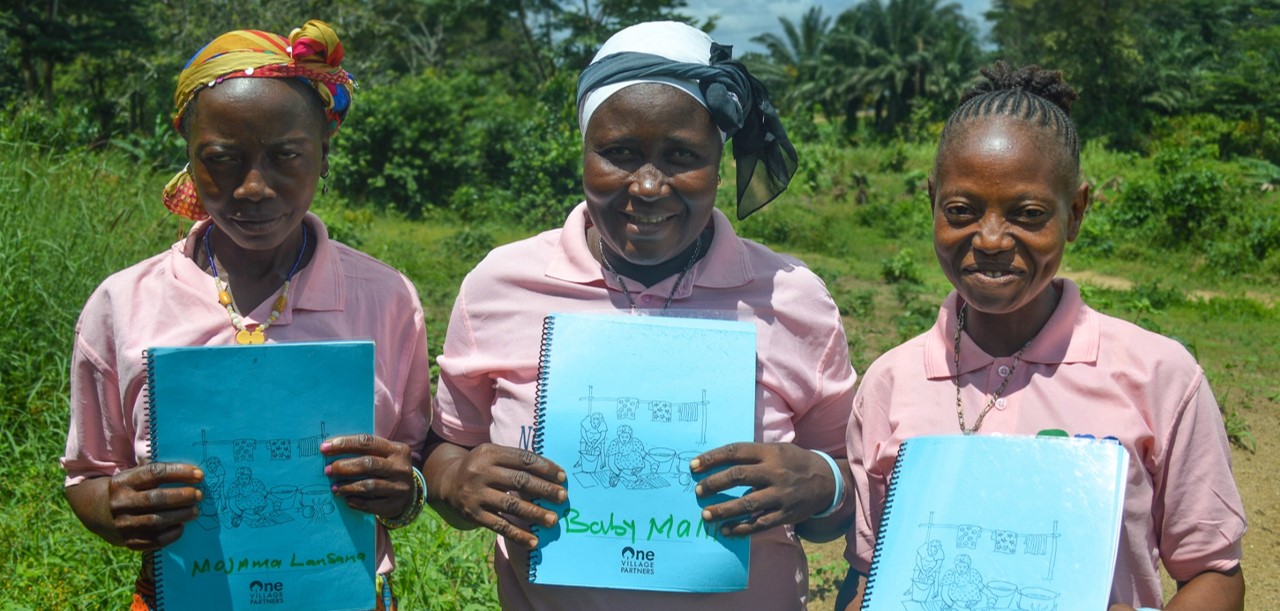
Mission
OneVillage Partners (OVP) catalyzes transformation in rural Africa.
Life Challenges of the Women Served
Women who are unable to access schooling are also denied access to the knowledge, skills, and confidence to manage finances and plan for the future. Coupled with little control over income and exclusion from household and community decision-making, they are marginalized economically and socially. The challenge for women across Sierra Leone is not necessarily a lack of access to income, but rather a lack of control of income. The challenges that women face in Sierra Leone, particularly in rural areas, are systemic, stemming from traditional tribal culture and colonialism. The magnitude and deep roots of gender inequality in society make it difficult to mitigate on a broad, national scale. For that reason, local solutions are the most effective approach.
In the Kailahun District of Sierra Leone, 61 percent of women have had no formal education, only 1 percent have completed secondary school, and just 29 percent are literate. Most (up to 70 percent) are employed in agriculture. Less than half of married, employed women in Kailahun District (46 percent) decide how their own cash earnings are used. These women must not only be financially literate, they must also be able to manage their income and make decisions as to how this income is used.
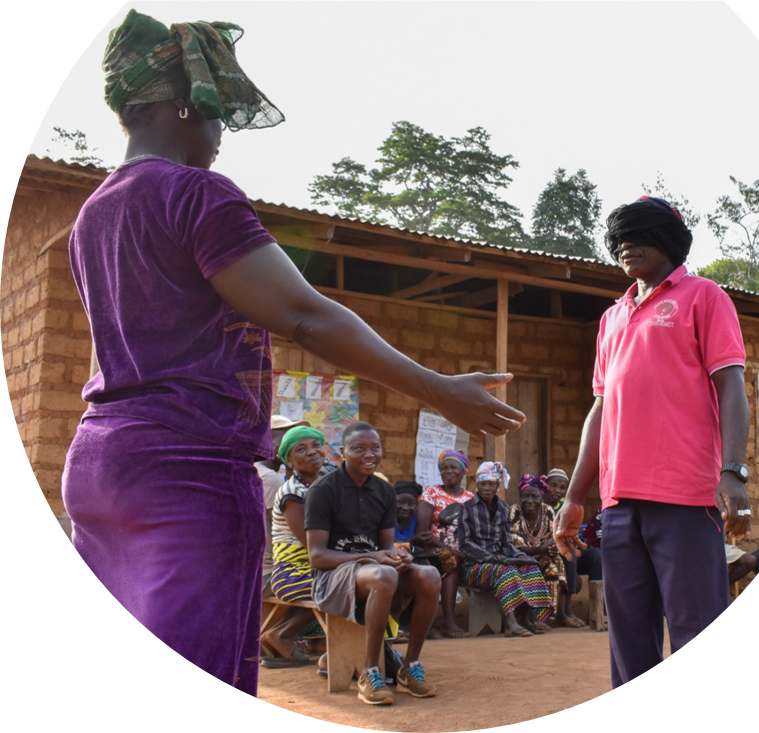 Sierra Leone’s formal education system is not reliable, nor is student attendance. The World Bank’s World Absenteeism survey across multiple developing countries reported that teachers missed an average of 20 percent of school days. This is like due to the government teachers not being paid or being paid late. Additionally, the curriculum – as in many lower income countries – is structured for students to pass various exams, as opposed to adequately demonstrating learned skills.
Sierra Leone’s formal education system is not reliable, nor is student attendance. The World Bank’s World Absenteeism survey across multiple developing countries reported that teachers missed an average of 20 percent of school days. This is like due to the government teachers not being paid or being paid late. Additionally, the curriculum – as in many lower income countries – is structured for students to pass various exams, as opposed to adequately demonstrating learned skills.
Furthermore, the demand for school in poorer countries has been widely cited as a challenge, notably by economist William Easterly, who posits that parents will not invest in education unless there is opportunity for those skills to be utilized. The return on investment, if it exists, is far into the future and does not address a family’s immediate needs and challenges that oftentimes keep children home from school to work. Girls are more likely to be kept home than boys.
Sierra Leone was central to the global slave trade from the late 15th century until the mid-19th century, after which it was colonized by the British. The nation declared independence from the British in 1961 and suffered a violent civil war from 1991 to 2002. Together, these events have resulted in extreme poverty, lack of opportunities for individuals and families to thrive, and systems and institutions that perpetuate corruption and a gender hierarchy.
The Project
This project addresses the persistent challenges to women’s financial literacy and empowerment in Sierra Leone. The NOW Program uses an entirely picture-based curriculum to equip women with life skills and community development tools to take control of their financial position in the household, open a business, and engage in civic life. In addition to practical skills, participants learn communication skills to interact with spouses and male family members to achieve personal financial goals and to shift behaviors about gender roles in the home and in the community.
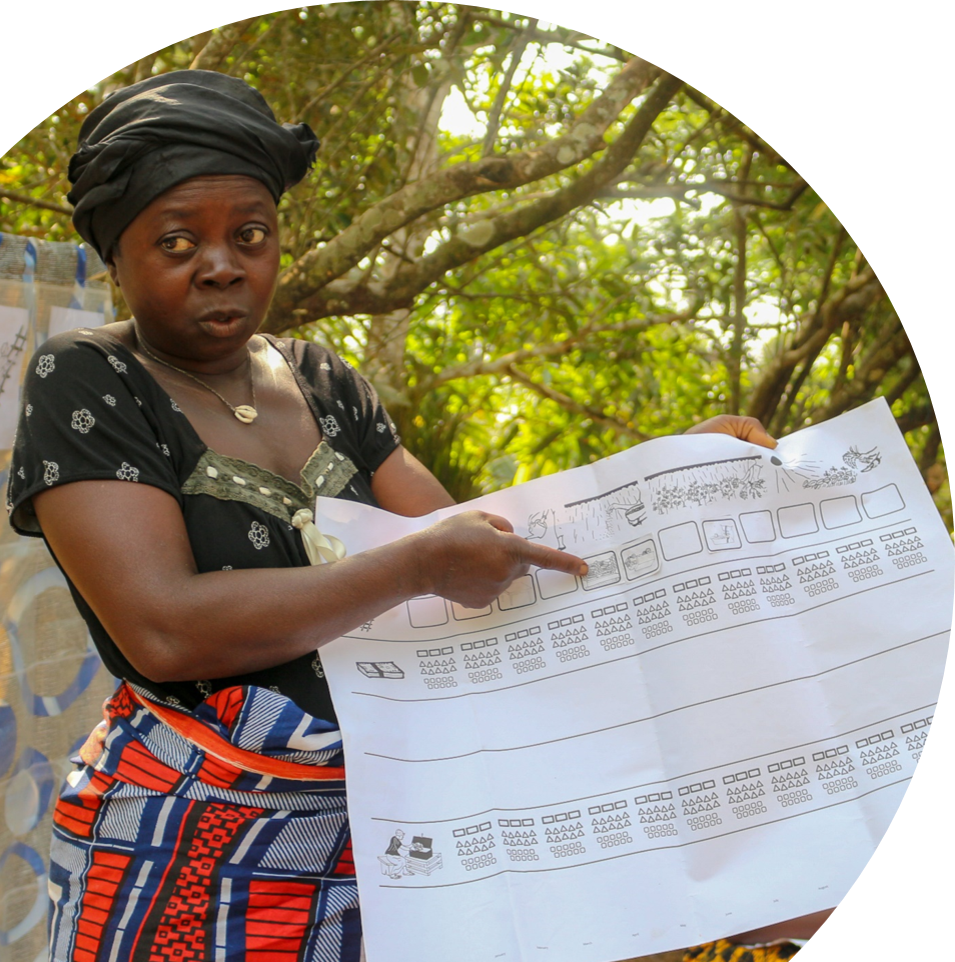 By investing in local solutions and local women, OVP creates change at the community level. In the first phase of the program, participants learn to plan and manage finances throughout the year to reach their goals and inform household financial decision making. The second phase of the program focuses on developing and expanding a business.
By investing in local solutions and local women, OVP creates change at the community level. In the first phase of the program, participants learn to plan and manage finances throughout the year to reach their goals and inform household financial decision making. The second phase of the program focuses on developing and expanding a business.
The picture-based curriculum workbook is used during every session. These sessions incorporate evaluation tools for participants to track their individual progress, communication skills, decisions and income. OVP uses this workbook to collect information about the participant’s acquired skills mid-way through the program during a home visit, where staff check in on the participant’s progress and address any potential concerns. By conducting baseline and end line assessments, both staff and participants can track and understand their progress. By incorporating learning with husbands and/or fathers, participants and their spouses and family members work together to improve gender equity within their household and their community.
The key factors that make the NOW program a success are its base in community-led development practices and its emphasis on working with women who are often left out of traditional financial education curriculum. Traditional financial literacy programs often assume too high a level of literacy, numeracy, and language comprehension among participants. These assumptions effectively exclude women who lack literacy and formal education who would benefit most from such training and who most need investments in their education. As OVP’s curriculum is picture-based and built to be culturally relevant, even women without formal education, literacy, or numeracy can grasp the core concepts. OVP also understands that education alone is not enough, so they work with participants to help them find their voice and encourage leadership, both in the home and in the community.
The NOW program heavily emphasizes improved communication and use of voice, including public speaking and equitable decision making. Many women in the NOW program have gone on to leadership positions in the community or have started new savings groups. In 2019, 16 percent of the NOW graduated cohort were given a formal leadership role in their village and five savings groups were established by them.
Through this project OVP supports the fact that women should have equal economic power, voice, and leadership representation in their homes and communities, and that with the opportunity for education, women can become leaders and decision-makers for their families and communities. The project’s implementation recognizes that spouses and male family members are essential in achieving gender equality; their support and understanding of their wives and daughters ensures that women have the support they need to achieve their own goals.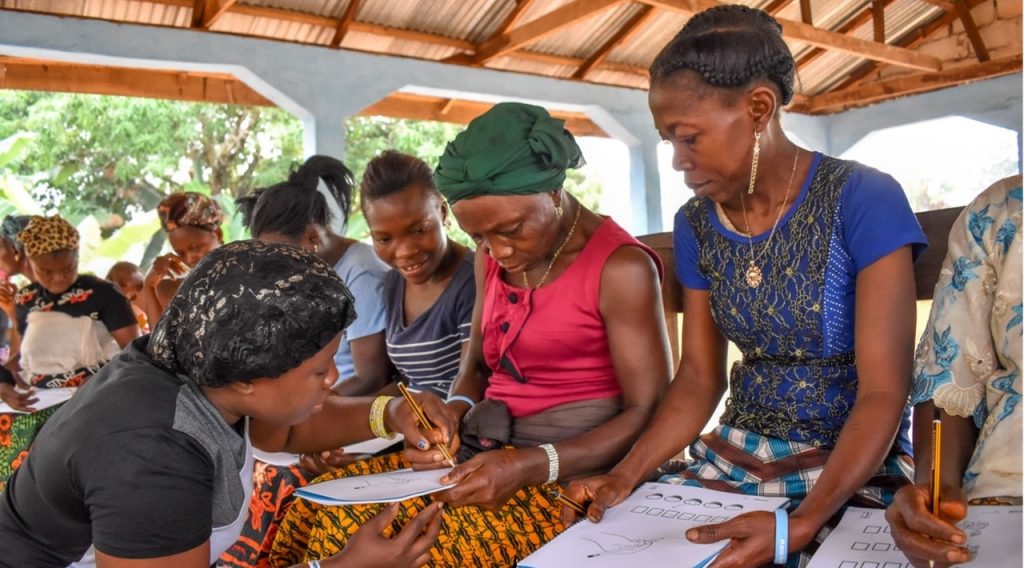
The first phase of the program is NOW: Strengthening Household Finances. This phase consists of 26 sessions over a 6-month period. By the end of this phase, participants will be empowered with several financial skills, including financial planning, decision-making, and public speaking. Women participants will have been trained in basic financial principles, learned tools for saving and tracking their resources, and practiced communication skills with spouses and male family members to achieve personal financial goals and to shift behaviors about gender roles in the home and in the community.
This phase will have 120 women participants in 2021 from the communities of Jokibu, Pujehun, Foindu, and Bombohun. All participants will be female. Sixty percent of previous years’ participants were illiterate, and only 35 percent finished primary school. These figures are similar for the four communities participating in the program in 2021, and they show the necessity of the program and its methodology focused on inclusiveness and picture-based learning. The women are a cross section of the community. Some groups have had participants as young as 18 and as old as 70.
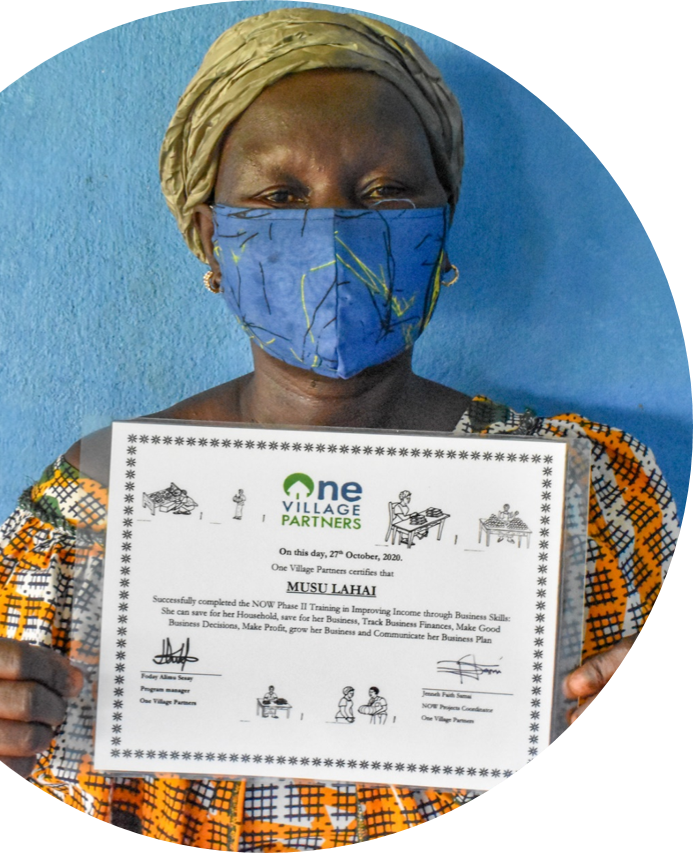 The second phase of the program is NOW: Business Skills, in which participants are selected from the NOW graduated cohort. There are 10 sessions in this phase, all focused on calculating profit, conducting market surveys, and identifying risks. One home visit is conducted by OVP staff to assess comprehension. Specific skills learned in phase two include problem solving, acquiring the tools necessary to develop a business plan, effectively increase profit, and confidently communicate their business ideas. Upon completion of the program, participants will know how to record and track income and expenses, assess risk, and calculate profit. After the program is complete, an end line survey assesses the participants’ success and broader program indicators.
The second phase of the program is NOW: Business Skills, in which participants are selected from the NOW graduated cohort. There are 10 sessions in this phase, all focused on calculating profit, conducting market surveys, and identifying risks. One home visit is conducted by OVP staff to assess comprehension. Specific skills learned in phase two include problem solving, acquiring the tools necessary to develop a business plan, effectively increase profit, and confidently communicate their business ideas. Upon completion of the program, participants will know how to record and track income and expenses, assess risk, and calculate profit. After the program is complete, an end line survey assesses the participants’ success and broader program indicators.
This phase of the program will also have 120 all-female participants in 2021. In the NOW 2019 cohort, 89 percent were engaged in some sort of business (mostly agricultural) and 65 percent were involved in a secondary business. After completing the program, most women said the program had helped them increase their income in their own business.
Phase two was formed after women provided feedback that they were unable to save in their businesses. The OVP team recognized that profit and income were interchangeable to them and many had started businesses without fully understanding the risks involved. The curriculum was developed to build off previous learnings and focus on business skills and management. OVP continues to explore new ways of empowering and supporting women, in collaboration with those women, based on their own reported needs.
OVP staff work alongside women in the community to organize themselves and to select a balanced cohort for the program. Each woman in the cohort has a “buddy” that they support outside of the classroom on program material and in reaching her financial goals. Each woman creates her own development solution that suits her family. Most of the financial goals that the women set are around saving for their children’s education, either tuition, lodging, school supplies and books, or supplemental tutoring classes. Women’s focus on their children’s education will dramatically improve educational outcomes for the children.
240 direct beneficiaries (women) and
5,000 indirect beneficiaries (Half the population of the isolated communities served by the project)
UN Sustainable Development Goals
![]()
![]()
![]()
![]()
Questions for Discussion
Explain the changes that might occur in families whose fathers come to disagree with the statement: “If a woman has power in the household, it means she is taking power away from her husband.”
How might the ripple effect of the NOW program present itself in families, the broader community, schools, and beyond?
In what other subjects could a picture-based education could benefit women and girls?
How the Grant Will be Used
Together Women Rise’s grant of $30,000 will help fund the following:
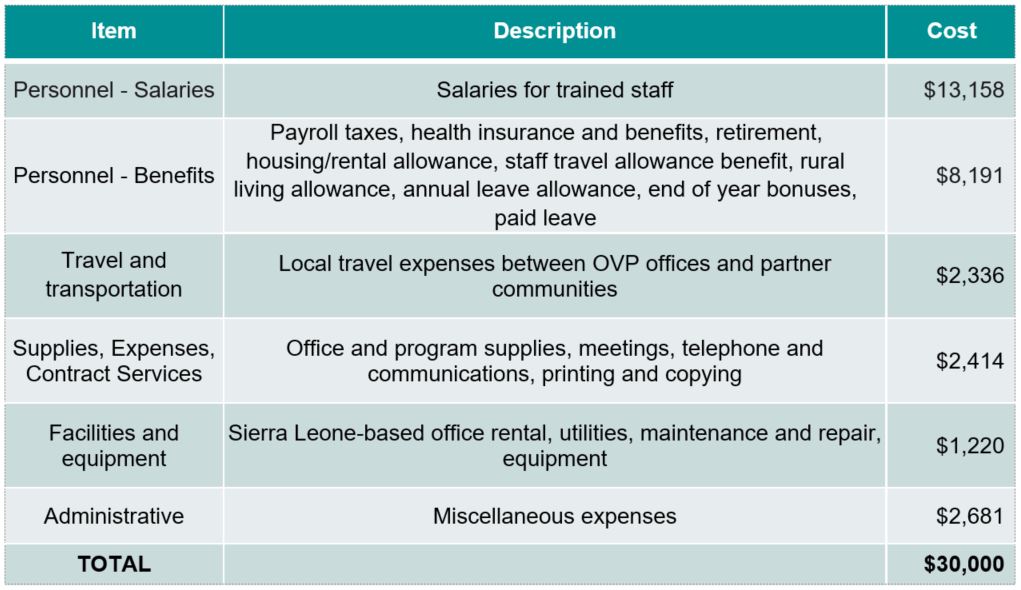
Why We Love This Project/Organization
We love this project for valuing women’s voices in programming and for the highly effective picture-based curriculum. By involving husbands and families in problem solving, this community-based project is staying true to the values of social cohesion, inclusive leadership, gender equality, and resilience. When communities work together, they can truly move the needle on global gender equality.
Evidence of Success
OneVillage Partners has earned GuideStar’s Gold Seal of Transparency and Charity Navigator’s 100/100 Encompass Rating.
In 2019, OVP achieved the following outcomes:
- – Gender equity: 70 percent of community members – men and women – stated husbands do not have the right to end his wife’s education, and 42 percent of speakers at community meetings were women, up from 20 percent at baseline.
- – Social cohesion: 98 percent of community members stated a shared vision of progress in their community.
- – Inclusive leadership: 82 percent of community members stated power is shared in community decisions, and 44 percent of OVP volunteers gained a formal leadership position in their community.
- – Resiliency: 68 percent of households were able to recover from economic shocks
- – Day-to-day well-being: For example, OVP measured an average of a 70 percent decrease in diarrhea prevalence in communities that undertook WASH projects.
After completing the NOW: Strengthening Household Finances program, Massah from the community of Makka felt stronger in decision making and public speaking. Massah became the Youth Chair Lady in Makka, a leadership position with the community that allowed her to utilize her new confidence and skills. Massah also participated in the NOW: Business Skills program and started a business before the program even ended. Upon graduation, Massah began a women’s savings group. Today, Massah successfully operates three women’s savings groups in Makka, making her one of the most successful business owners in her community.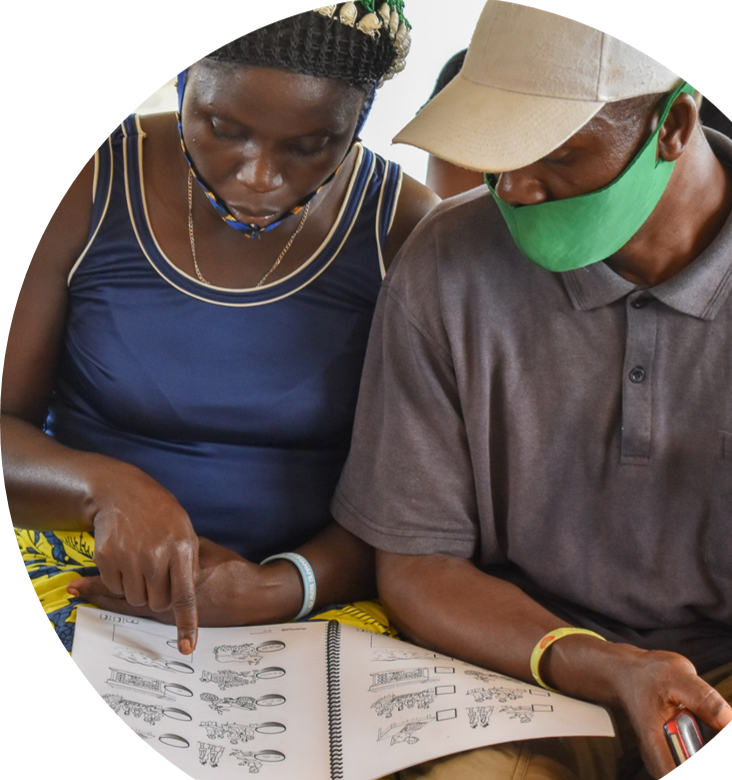
Matu is a NOW program graduate from the community of Madina, and like most women in the area, Matu has had no formal education. Before participating in the NOW program, Matu did not know how to budget, and therefore could not properly plan for her family and their household development. She would sell all her family’s agricultural products during the harvesting season when prices are typically low, meaning the family was bringing in less profit and going hungry during the hungry season. All these challenges were exacerbated by conflict with her husband, who was frustrated at the lack of necessities in their household and lack of food in the hungry season. Matu knew that she had to make a change. When she heard about the NOW program, she signed up to participate and learn the financial skills that would help her better manage her family’s finances, sales of agricultural products, and household development.
Watta is a single mother in the community of Gbeka who struggled to save money, provide necessities for her children, and pay for her children’s education. Watta’s friend, Miatta, had recently graduated from the NOW program and offered to pass along the lessons to Watta. Miatta helped Watta with the lessons and workbook, working with her to set financial goals and keep track of her progress. With Miatta’s support, Watta learned to save, budget, and be responsible with her decision making. In time, Watta was able to pay off debts, build her own savings, and start a palm oil and soap business. Today, Watta has been able to put her children through school, including college, and her businesses are operating successfully. She has also shared the lessons from Miatta with other women, ensuring that women in her community are learning the skills that helped her improve her livelihood.
Lucy is a 30-year-old farmer and single parent living in the community of Grima. Before participating in the NOW program, Lucy did not know how to effectively manage her household finances, nor did she know how to save money for emergencies and unexpected events. Lucy was only able to support herself and her children by working odd jobs, borrowing money, and selling her property. When Lucy joined the NOW program, she learned financial literacy skills, how to save, and how to budget. She started saving for emergencies and began selling her farming products to increase her earnings. Eventually, Lucy saved enough to pay off her debts and pay for her children’s education, medical bills, and household needs.
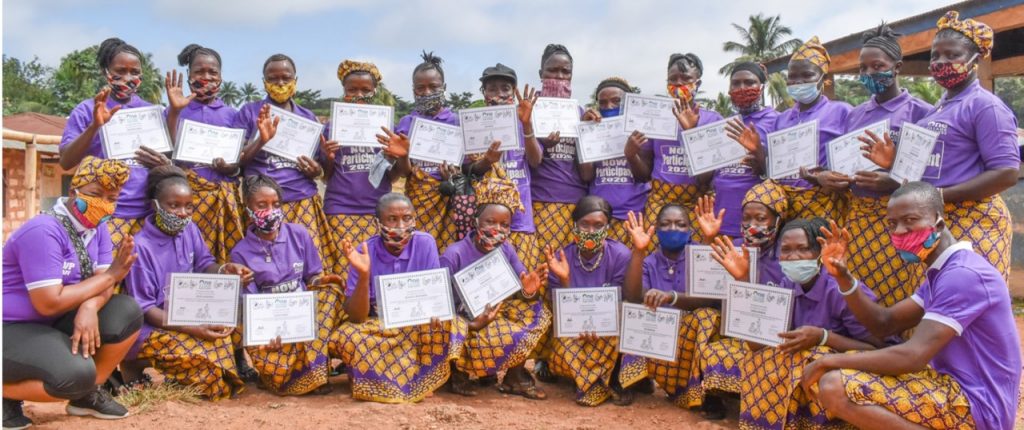
Voices of the Girls
“I was so happy for the knowledge I gained from the NOW Program. They did a great job about the business skills they taught us.” – Musu, Yandohun, Sierra Leone, NOW graduate
“The culture of savings and budgeting saw me through my struggle, as it is the tool for my success. Through the NOW learning, I plead to other women to embrace change.” – Hawa, Ngolahun, Sierra Leone, NOW graduate
“NOW learning provided a strong foundation for women involvement into decision major making and development planning.” – Safiatu, NOW participant, Maloma, Sierra Leone
“OVP’s work has taught me a very big lesson, that speaking in public or interacting with other people within the society is not qualified by the level of one’s education, but rather through dedication, commitment and perseverance.” – Mattu, NOW participant, Ngolahun, Sierra Leone
“With savings, I have become more responsible and [I am] respected by my family members and friends.” –Lucy, NOW graduate
About the Organization
OVP began their work in Sierra Leone in 2006 to help displaced refugees in Sierra Leone return to their homes after the civil war in the 1990s. Founder Jeff Hall had been a Peace Corps volunteer and he began raising resources to help his friends rebuild. OneVillage Partners was founded in 2010. In 2020, OVP celebrated raising $1 million in revenue for the first time and their tenth anniversary. They also began implementing plans to expand to a new region.
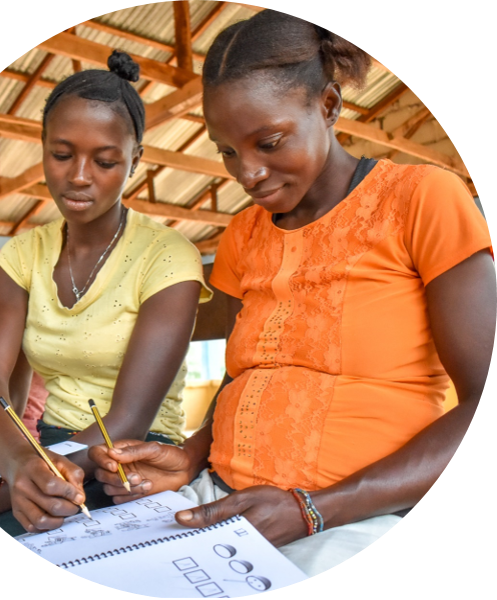 OVP actively works with 27,000 individuals across 24 communities in Sierra Leone. The opportunities for individuals in Sierra Leone to realize their full potential are stifled by day-to-day challenges. Forty-four percent of the population lives in multidimensional poverty. Nationally, life expectancy for Sierra Leoneans is 52 years, and across rural Sierra Leone, literacy rates for men and women are staggeringly low – 39 percent and 22.5 percent, respectively. In rural areas such as where OVP works, only 36 percent of the population has access to improved sanitation facilities and only 47.5 percent of residents have access to clean drinking water.
OVP actively works with 27,000 individuals across 24 communities in Sierra Leone. The opportunities for individuals in Sierra Leone to realize their full potential are stifled by day-to-day challenges. Forty-four percent of the population lives in multidimensional poverty. Nationally, life expectancy for Sierra Leoneans is 52 years, and across rural Sierra Leone, literacy rates for men and women are staggeringly low – 39 percent and 22.5 percent, respectively. In rural areas such as where OVP works, only 36 percent of the population has access to improved sanitation facilities and only 47.5 percent of residents have access to clean drinking water.
OVP builds the capacity of rural communities to lead their own development. OVP has three interconnected programs that encourage inclusive leadership, social cohesion, gender equity, resilience, and improved well-being for all. The three programs are:
Nurturing Opportunities for Women (NOW)
Community Action Program: OVP trains volunteer leaders to mobilize their communities effectively. These leaders work with their villages to identify the most pressing problems, and then to design and implement projects that address these problems.
The Lead Program: This project allows rural leaders to enhance their leadership skills, connect with one another, and execute collaborative development projects by submitting grant applications to OVP.
OVP shares its curriculum, training materials, and learning as widely as possible, with the goal of increasing indirect impact through sharing. OVP engages closely with partner organizations, local and district government, as well as the parallel system of traditional leadership. OVP specializes in community mobilization and education, leadership training, and financial literacy while partner organizations bring technical expertise relevant to specific projects. OVP has partnered with numerous other organizations in the past, including working with Marie Stopes to implement a sexual and reproductive health training for youth in a community where teenage pregnancy was identified as one the most pressing problems. Recently, OVP partnered with Water4 to collaborate on a water well construction project. Additionally, OVP is an active member of the Movement for Community-Led Development, led by the Hunger Project.
Where They Work
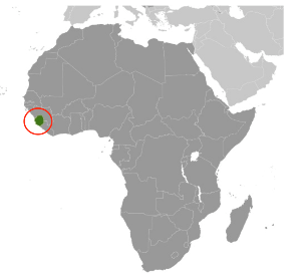
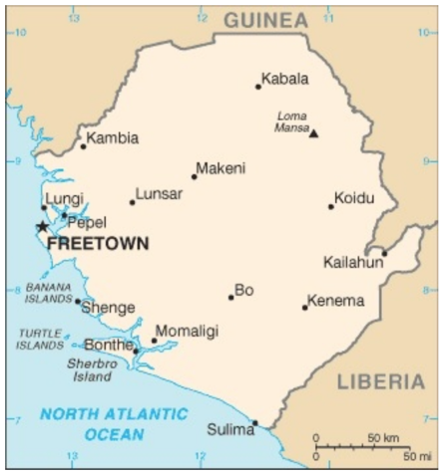
Sierra Leone is a country in northwest Africa that is slightly smaller than South Carolina. The population of 6.8 million is 79 percent Muslim and 21 percent Christian. There are many ethnic groups, with Mende and Temme comprising the two largest groups. Although most people work in subsistence agriculture, Sierra Leone is also mined for diamonds, gold, and other materials. The Kailahun District is in the eastern province of Sierra Leone. Like much of the rest of the country, most in this region are Muslim and Mende, and the primary economic activities include farming and diamond mining.
Sierra Leone has been both a source and a destination for refugees. Two million Sierra Leonians were displaced during the civil war from 1991 to 2002 – almost half the population at the time – and half a million fled to neighboring countries. Sierra Leone has worked to rebuild the country’s infrastructure since the civil war ended. Its high unemployment rate is the result of illiteracy, unskilled labor, a lack of private sector jobs, and low wages. Today, half the men are literate and 40 percent of the women.
The population in Sierra Leone is young, with 60 percent under age 25. This is the result of its high fertility rate of approximately five children per woman. This has declined in the recent past but continues to be the norm due to a desire for large families, contraceptive use by just 21 percent, and median childbearing age of 19. The infant, child, and maternal mortality rates are among the world’s highest. This is due to poverty, lack of potable water and sanitation, poor nutrition, limited access to quality healthcare, and the common practice of female genital cutting.
Although education is legally required for all children, a shortage of schools and teachers makes this virtually impossible. A recent study confirmed that 55 percent of schools need repairs, with 25 percent collecting water from streams and 38 found to have non-functional toilets.
Sierra Leone is comprised of four distinct regions: the coastal swamp, the peninsula, the interior plains, and the interior plateau and mountain region. The capital, Freetown, contains one of the world’s largest natural harbors. The climate is tropical and is characterized by rainy and dry seasons. Conditions are typically hot and humid. The rural towns are comprised of clusters of buildings with around 200 villagers each. Dancing is a popular cultural event. The Sierra Leone National Dance Troupe has been performing for decades.
A closer look at innovative teaching tools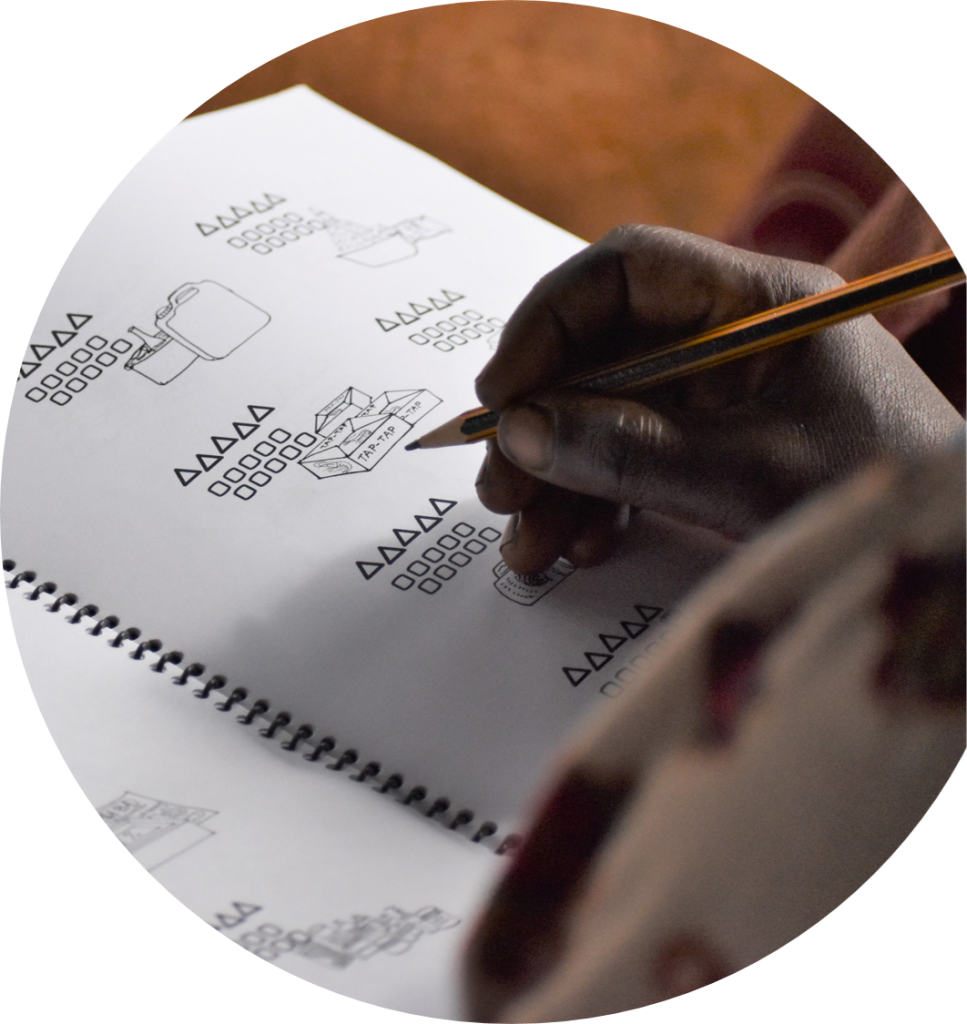
Despite an increase in literacy rates in the past few decades, there are 773 million illiterate adults in the world. Most of them are women. That’s 10 percent of the world’s population, not counting the estimated 250 million children who cannot read, write, or count well, or the 200 million who leave school without the skills they need to succeed. Programs around the world aimed at boosting literacy provide some important reminders of what works – and what doesn’t.
For starters, it is important to teach reading and writing using the mother tongue and the native culture. In countries where lessons are taught in English, the results can be less than ideal. In Pakistan, for instance, children who learn to read in English can sound out the words but their comprehension is lacking. Teaching in the mother tongue is easier and more effective – regardless of age. Similarly, anchoring the curricula in the native culture provides a sense of social unity and pride that benefits learning.
It’s also critical to foster a love of reading. This often stems from storytelling in the local language. When a parent holds a child and tells him/her a story or a volunteer reads a book to a child, that child comes to associate comfort and pleasure with stories and books and, by default, reading. A program in Jordan showed that fostering a love of reading was the key step to improving literacy. A child who has developed a love of stories is more likely to pick up a book than a child who has not had this experience. In other words, handing out free books is not enough. Further, it is important to improve the living and working conditions of literacy workers. If they are not motivated to read to children, then the outlook becomes less optimistic.
Teaching children to read and write is imperative, but it is also critical to provide adult education. The thinking for many years was that educating the next generation of children would “solve” the literacy problem. Unfortunately, this has been proven wrong. Rather than only focus on children, a broader, more holistic approach to literacy is needed. This often starts with increasing women’s literacy, which then creates an environment in the home that emphasizes learning. Sometimes this starts with folding literacy into other programs, so that the process of reading and writing becomes a natural extension of, for example, a community effort or a program that targets gender inequality or discrimination.
Finally, the use of targeted technology can help – but it must be used wisely. For instance, interactive whiteboards in Burkina Faso, a mobile phone-based program in Côte d’Ivoire, and solar-powered tablets in Uganda have proven successful in boosting literacy. But it is critical that the material being delivered by these digital devices be engaging, practical, and written in the native tongue. It is also important that there is not over-reliance on the internet, since access can be spotty in many locales.
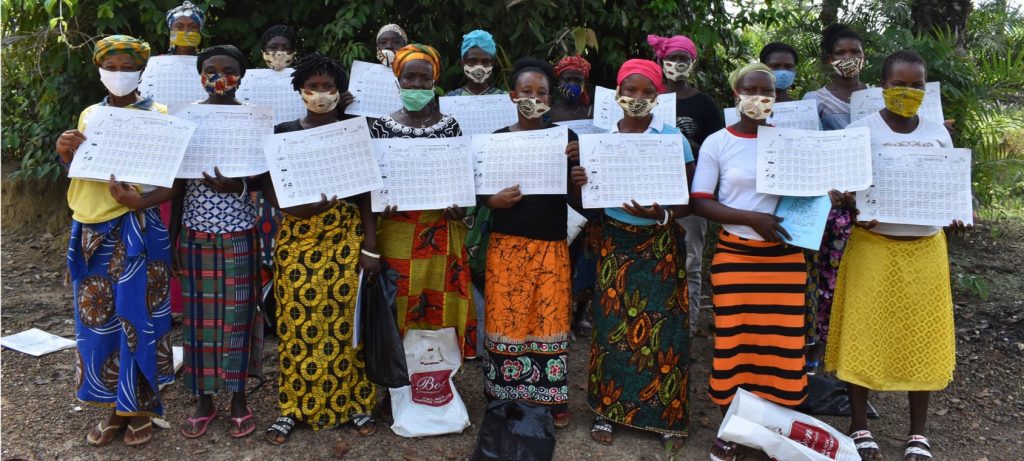
Source Materials
